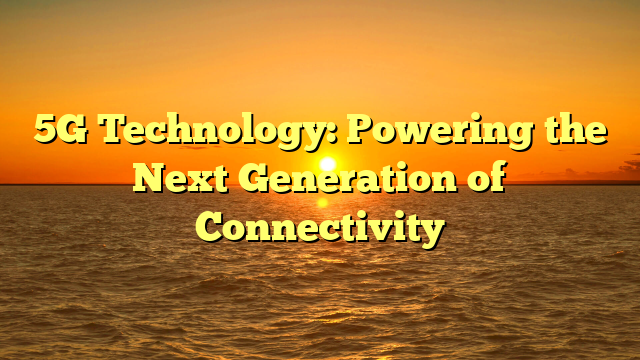The rollout of 5G technology is one of the most significant milestones in telecommunications. As the successor to 4G, 5G promises faster speeds, lower latency, and greater capacity. Beyond otpklik improving mobile phone connections, it will enable innovations across industries, from healthcare to manufacturing.
At its core, 5G is designed to deliver speeds up to 100 times faster than 4G. This makes downloading large files or streaming ultra-high-definition videos almost instantaneous. More importantly, 5G reduces latency—the delay between sending and receiving data—to just milliseconds. This near-real-time communication is essential for applications such as autonomous vehicles and remote surgery.
The Internet of Things (IoT) is expected to benefit most from 5G. Billions of connected devices, from smart appliances to industrial sensors, require stable, high-capacity networks to function effectively. With 5G, cities can implement smarter infrastructure, such as traffic management systems that respond dynamically to congestion, reducing emissions and improving efficiency.
Healthcare is another sector poised for transformation. 5G will support telemedicine, allowing doctors to conduct consultations with high-quality video and real-time monitoring. In more advanced scenarios, surgeons could even perform robotic-assisted surgeries remotely, using 5G’s low-latency capabilities to control instruments with precision.
Despite its promise, 5G faces challenges. Building the infrastructure requires massive investment, and rollout has been uneven across regions. Concerns about cybersecurity also persist, as more connected devices mean more entry points for potential attacks. Additionally, debates about the health effects of 5G radiation, though largely dismissed by scientists, continue in some communities.
In summary, 5G is more than just an upgrade in mobile speed. It is a transformative technology that will redefine how people, devices, and industries connect. As it becomes more widespread, 5G will form the backbone of the digital economy, fueling innovation for years to come.
